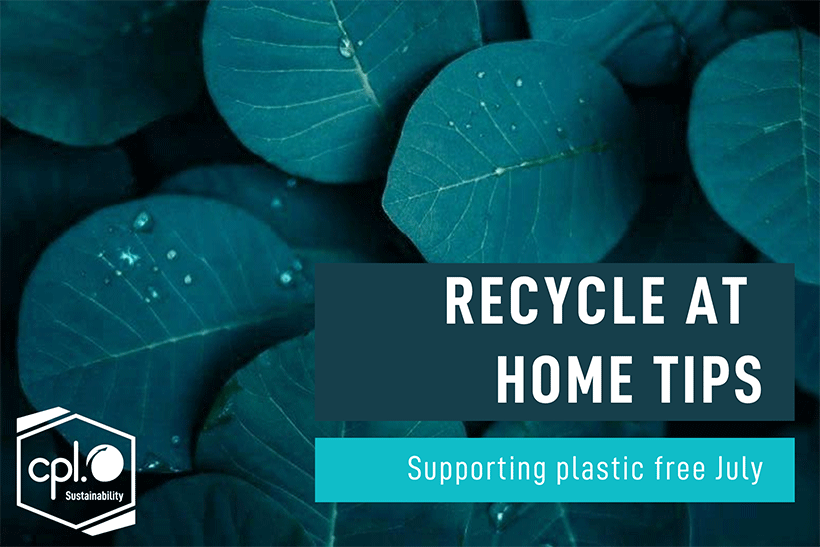Working from home for the past 5 months has had many ups and downs. The highs of no 2-hour commute and sharing relaxed breakfast time with my family and the lows and sheer frustration of the lack of quiet in a house with four people.
Working from home has also been one of the most sustainable things we could do for our environment. Traffic levels have fallen, air quality has improved and there are far fewer disposable coffee cups being purchased.
Spending 7 days a week at home has been a great time for myself and my family to look at our recycling habits and make sure that our practices are up to date. Recycling guidelines change and it’s important to keep up to date with advice.
Ireland’s recycling rate was 41% in 2017. The target for 2035 is 65% and if we all recycled correctly this target would be hit today.
Here are some of the tips we have picked up and some new recycling habits we have formed to help you recycle when working from home.
Recycling Working from Home Tips
1. Clean, dry & loose
In 2017, the Irish waste industry faced costs of €1m for the return of a shipment of recycled materials due to contamination (Irish Times) while the amount of household waste produced per person in Ireland increases every year, 314kg of household waste per person in 2018 (EPA).
The main thing to keep in mind when recycling is that all items need to be clean, dry & loose to prevent contamination. Rinse any item that needs cleaning and remember you don’t need a plastic bin liner when recycling. By simply separating waste correctly we can increase the volume of waste which is recycled and save on our own waste costs.
2. Recycling take away packaging
Deliveroo reports as we’ve all moved to working from home and staying indoors more there has been a rise in communal ordering and takeaway orders. While in the UK surveys have shown an increase in waste as a result of more takeaways.
If you are ordering food remember pizza boxes can be recycled, even if they have grease marks. But always scrape uneaten food into your compost bin. Clean and dry plastic and aluminium packaging can also be recycled and should be placed in your recycling bin.
3. Recycling Cleaning Products
Empty cleaning product bottles do not need to be rinsed. Labels and lids don’t need to be removed from any packaging either, so just leave your lids on.
All cardboard and tin foil can also be recycled just make sure it’s dry and clean. Flatten all cardboard and roll any tin foil into a ball.
4. Invest in a portable water bottle and tea/coffee mug.
Remember when you buy bottled water you are essentially buying a plastic bottle that will take 450 years to decompose. Most coffee cups will also sit in landfill for 30 years. Many cafés offer discounts if you bring your own cup, so save yourself money and bring your own.
5. Soft plastics cannot be recycled
Currently, only rigid plastics can be recycled. Soft plastics, such as sweet wrappers, plastics from fruit packaging and cling film should be placed in your black bin. Keep this in mind when purchasing groceries and if possible try and avoid soft plastics.
6. 45,000 tonnes of textiles contaminate black bins every year
Clothes and other textiles should be disposed of in clothes banks at recycling centres. Or in your local charity shop if they are still in good condition.
Also, consider the environmental impact of fast fashion. One t-shirt needs up to 2,700L of clean water to manufacture whereas every pair of denim jeans needs thousands of litres of water and vast amounts of energy consumption to be created.
We dispose of so many things and there are so many bin types that we can’t know it all. Put simply there are just 3 categories that should go in your recycling bin: paper & cardboard, rigid plastic, metal tins, cans & tin foil.
We can’t all know how to prepare, separate and dispose of every item so if you’re ever confused Mywaste.ie has an A-Z of how to dispose of 293 items. Take time to bring yourself up to speed on how to recycle correctly and create good recycling habits for life.
